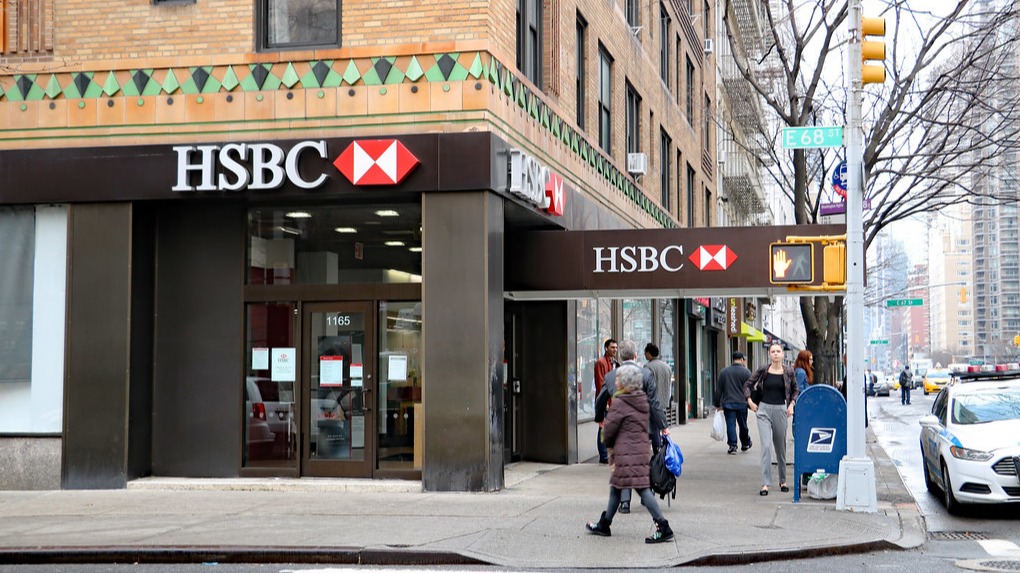Celine Herweijer, group chief sustainability officer at HSBC, has announced her departure from the bank at the end of the year, sparking debate about the organisation's commitment to climate strategies.
Herweijer will leave her role after being removed from the bank's top decision-making body, the group operating committee, in a recent management restructuring led by new chief executive officer Georges Elhedery. The bank will replace her with Julian Wentzel, currently head of global banking for the Middle East, North Africa and Turkey region, on an interim basis.
The executive's exit comes at a critical time for financial institutions navigating increasing scrutiny of environmental, social and governance (ESG) commitments. Andrew Harper from Epworth Investment Management, a shareholder in HSBC, expressed significant concern, stating: "With Celine's departure, HSBC has lost a crucial moral compass in its journey toward net zero."
HSBC has sought to quell growing investor anxieties, emphasising that "supporting the transition to net zero remains a priority" and constitutes one of the bank's four core business strategy pillars. The organisation unveiled its first net-zero transition plan in January, committing to help its heaviest-emitting clients decarbonise their businesses by 2050.
Herweijer, who joined HSBC in 2021 after serving as global sustainability and innovation leader at PwC, reflected on her tenure: "I believe that HSBC – as one of the world's largest banks – has a key role to play in financing the transition across the global economy and supporting our customers."
The departure follows a broader industry trend of scepticism towards green investing. Notable figures like Larry Fink from BlackRock have distanced themselves from ESG terminology, while other financial leaders, including Jamie Dimon of JP Morgan, have criticised net-zero transition strategies as "enormously naive".
Elhedery has consistently defended the bank's sustainability commitments, asserting last month that HSBC remains "committed to become a net zero bank by 2050" and that these fundamental objectives will not change.
The restructuring, which reduced the executive committee from 18 to 12 members, has raised questions about the bank's future environmental approach. Investors and climate advocates are watching closely to see whether HSBC will maintain its ambitious sustainability targets.
Herweijer's departure marks a significant moment in the bank's climate strategy, leaving many to wonder about the future direction of HSBC's net-zero commitments.
Latest News
-
Gemini to cut quarter of workforce and exit UK, EU and Australia as crypto slump forces retrenchment
-
Bank ABC’s mobile-only ila bank migrates to core banking platform
-
Visa launches platform to accelerate small business growth in US
-
NatWest to expand Accelerator programme to 50,000 members in 2026
-
BBVA joins European stablecoin coalition
-
eToro partners with Amundi to launch equity portfolio with exposure to ‘megatrends’
Creating value together: Strategic partnerships in the age of GCCs
As Global Capability Centres reshape the financial services landscape, one question stands out: how do leading banks balance in-house innovation with strategic partnerships to drive real transformation?
Data trust in the AI era: Building customer confidence through responsible banking
In the second episode of FStech’s three-part video podcast series sponsored by HCLTech, Sudip Lahiri, Executive Vice President & Head of Financial Services for Europe & UKI at HCLTech examines the critical relationship between data trust, transparency, and responsible AI implementation in financial services.
Banking's GenAI evolution: Beyond the hype, building the future
In the first episode of a three-part video podcast series sponsored by HCLTech, Sudip Lahiri, Executive Vice President & Head of Financial Services for Europe & UKI at HCLTech explores how financial institutions can navigate the transformative potential of Generative AI while building lasting foundations for innovation.
Beyond compliance: Building unshakeable operational resilience in financial services
In today's rapidly evolving financial landscape, operational resilience has become a critical focus for institutions worldwide. As regulatory requirements grow more complex and cyber threats, particularly ransomware, become increasingly sophisticated, financial services providers must adapt and strengthen their defences. The intersection of compliance, technology, and security presents both challenges and opportunities.
© 2019 Perspective Publishing Privacy & Cookies





.jpg)








Recent Stories